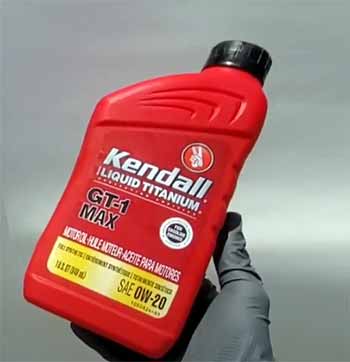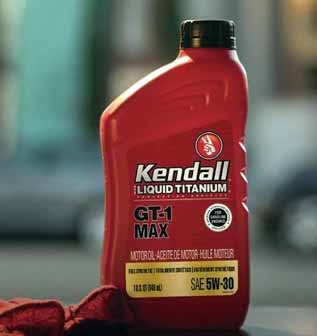Alright, folks, if you’re on the hunt for an engine oil that’s reliable, affordable, and keeps your ride purring like a dream, let me point you straight to Kendall engine oil. I’ve been using it for a while now, and trust me, it’s worth every penny.
You can snag it at places like AutoZone, Firestone, or even online if you’re into that convenience vibe. It’s not just oil—it’s peace of mind for your engine.
Stick with me through this review, and I’ll spill all the beans on why you should make the switch today.
My Journey With Kendall Engine Oil

Let me take you back to when I first stumbled across Kendall engine oil.
I was driving my trusty 2004 Honda Civic, a car that’s seen more miles than I’d like to admit.
I’d been loyal to a big-name synthetic oil—let’s call it the one everyone raves about—but I started noticing my engine wasn’t as happy as it used to be.
It was noisier at idle, and I swear I could feel a little roughness when I pushed it on the highway.
One day, I rolled into a Firestone for a quick oil change, and the tech mentioned they used Kendall full synthetic.
I shrugged and said, “Sure, why not?”—mostly because I was too tired to argue.
The difference hit me like a ton of bricks.
After that oil change, my Civic felt smoother—like it had shed a layer of grime I didn’t even know was there. The idle settled into this quiet, steady hum, and the engine just seemed happier.
I’m no mechanic, but I could tell something was working better. Curious, I started buying Kendall myself, pairing it with a solid Wix filter (because I’m picky like that), and doing the changes at home. It’s been a game-changer.
I’ve stretched my oil changes to about 8,000 miles—roughly every six months—and the oil still looks decent when I drain it. No sludge, no weird smells, just good, clean performance.
I’ve since tried it in my wife’s old minivan, a ’99 model with more miles than a cross-country road tripper. That engine’s been through the wringer, but with Kendall, it runs so smooth I almost forget it’s pushing 20 years old.
It’s like the oil’s whispering sweet nothings to the pistons, keeping everything in harmony. My experience has me hooked, and I’m here to break it all down for you—pros, cons, and everything in between.
Also Read: Is Lucas Oil Transmission Fix Worth It?
Pros of Kendall Engine Oil

- Smoother Engine Performance
Let’s start with the big one: Kendall makes my engine feel like it’s on vacation. I’ve noticed a real difference in how my car runs compared to other oils I’ve used.
The idle’s quieter, the revs feel more consistent, and there’s this subtle smoothness that’s hard to explain until you feel it yourself. It’s like the oil’s giving my engine a hug, reducing friction in all the right places.
- Longevity That Impresses
Here’s something I love: this oil holds up. I’ve pushed it to 8,000 miles in my Civic, and when I check it on the dipstick, it’s still got that golden hue—not some nasty, burnt mess.
Even in my wife’s high-mileage minivan, the oil looks surprisingly good after months of use. It’s not breaking down or turning to sludge, which tells me it’s got some serious staying power.
- Wallet-Friendly Price
You know what’s better than great oil? Great oil that doesn’t cost an arm and a leg. Kendall’s price tag is a breath of fresh air compared to some of those fancy boutique brands.
I’m getting full synthetic performance without feeling like I’m splurging on a luxury item. It’s a win for my engine and my bank account.
- Versatility Across Vehicles
I’ve used Kendall in two totally different cars—a beat-up old minivan and a peppy little sedan—and it’s delivered every time.
Whether you’ve got a high-mileage clunker or a daily driver you baby, this oil seems to adapt. It’s like a Swiss Army knife for engines, and that flexibility keeps me coming back.
- Reduced Engine Noise
I can’t overstate this enough: my engines are quieter with Kendall. That annoying tick-tick-tick at idle? Gone. It’s not just in my head either—my wife noticed it too, and she’s not even into cars.
Less noise means less wear, and I’m all about keeping my rides running smooth for as long as possible.
Cons of Kendall Engine Oil
- Limited Availability: Okay, here’s my first gripe: Kendall isn’t everywhere. I can’t just stroll into any gas station or big-box store and grab it off the shelf. Firestone’s got it, and some auto parts stores carry it, but I’ve had to plan ahead or order online more than once. It’s a hassle when I’m in a pinch.
- Not a Household Name: Kendall doesn’t have the flashy ads or the name recognition of some competitors. I’ll admit, I was skeptical at first because I hadn’t heard of it. If you’re someone who trusts the big dogs like Mobil 1 or Castrol, you might hesitate. It’s not a dealbreaker, but it’s worth mentioning.
- Potential for Overconfidence: This one’s on me, not the oil. Because it performs so well, I’ve been tempted to stretch my oil changes even further—like 10,000 miles or more. But I’ve held back, knowing that’s a gamble. Kendall’s good, but it’s not magic. You still need to stick to a reasonable schedule.
Also Read: Is Valvoline Instant Oil Change Worth It?
Tips For Using Kendall Engine Oil

- Stick to a Sensible Change Interval: I’ve found 8,000 miles works great for me with Kendall, but you’ve got to figure out what’s right for your ride. Check your owner’s manual, think about how you drive, and don’t push it too far just because the oil looks good. I keep a little log in my glovebox—mileage in, mileage out—so I don’t lose track.
- Pair It with a Quality Filter: I’m a Wix guy through and through. Kendall’s awesome, but it’s only half the equation. A solid filter keeps the crud out and lets the oil do its job longer. Don’t skimp here—spend the extra few bucks and thank me later when your engine’s still kicking years down the road.
- Check Your Levels Regularly: Even with a champ like Kendall, I make it a habit to pop the hood every couple of weeks and peek at the dipstick. It’s not that I don’t trust the oil—it’s just smart. Catch a low level early, top it off, and you’re golden. I’ve avoided headaches this way, especially in that leaky old minivan.
- Warm Up Your Engine Properly: I’ve noticed Kendall really shines when I give my engine a minute to warm up, especially in colder weather. Don’t just fire it up and floor it—let the oil circulate. It’s like stretching before a workout; your engine will thank you with smoother performance.
- Watch for High-Mileage Needs: If you’re running an older car like my wife’s ’99 minivan, Kendall’s got your back, but keep an eye on seals and gaskets. High-mileage engines can be finicky, and while the oil’s great, it’s not a miracle worker. I check for leaks more often just to stay ahead of any surprises.
Comparison of Kendall Engine Oil With Other Brands
- Kendall Vs. Mobil 1
Mobil 1’s the king of synthetics, right? I used it for years, and it’s solid—great protection, big reputation. But when I switched to Kendall, I noticed my engine ran quieter and smoother, which Mobil 1 didn’t quite deliver.
Kendall’s cheaper too, which is a bonus. Mobil 1 might edge out in extreme conditions, but for my daily driving, Kendall’s got the upper hand.
- Kendall Vs. Castrol
Castrol’s another heavy hitter I’ve tried. It’s good stuff—keeps engines clean and handles heat well. But I found Kendall gave me that extra smoothness Castrol lacked, especially at idle.
Price-wise, they’re close, but Kendall feels like a better value for what I get. Castrol’s more widely available, though, which is a point in its favor.
- Kendall Vs. Valvoline
Valvoline’s been in my garage before, and it’s reliable—never had an issue. But Kendall seems to last longer between changes, and my engines just feel happier with it.
Valvoline’s easier to find, and it’s got a loyal following, but I’d pick Kendall for that consistent performance and quieter operation any day.
- Kendall Vs. Pennzoil
Pennzoil’s a classic, and I’ve used it in older cars with decent results. It’s tough on sludge, which is great, but Kendall’s smoother ride and better price keep me hooked.
Pennzoil might have a slight edge in extreme heat, but for my needs, Kendall’s the winner—less noise, more peace of mind.
Also Read: Is MOA Oil Additive Worth It?
Frequently Asked Questions (FAQ)
Kendall engine oil comes from Phillips 66, a big player in the energy and lubricants game. They’ve been refining oil for ages, and Kendall’s one of their standout brands. I trust it knowing it’s backed by a company with serious know-how.
Nothing “happened” to it—it’s still kicking! There’s some confusion because the original Kendall refinery in Pennsylvania got split off years ago, and now that oil’s sold as Brad Penn. But Phillips 66 keeps the Kendall name alive with their own blend. I’ve had no trouble finding it, so it’s definitely not gone.
Tough call—I’d say it depends on your car and driving style. Mobil 1’s a top dog for high-performance stuff, and Amsoil’s a favorite for enthusiasts. But for my money, Kendall’s right up there. It’s not the flashiest, but it delivers where it counts: smooth running and solid protection.
Kendall’s roots go back to 1881 in Pennsylvania, where it started as a refining company. It built a rep for tough, reliable oil—racers loved it back in the day. Phillips 66 scooped it up in the ‘90s, and now it’s a modern blend with that old-school legacy. I dig the history; it adds some character to every quart I pour.
Conclusion: Make Kendall Your Go-To Engine Oil
So, there you have it—my full rundown on Kendall engine oil. It’s smooth, long-lasting, and easy on the wallet, making it a no-brainer for anyone who cares about their engine. You can pick it up at Firestone, AutoZone, or online, and I’m telling you, it’s worth the grab.
Whether you’re cruising in a high-mileage beast or a daily commuter, Kendall’s got you covered. Give it a shot—I bet you’ll be as hooked as I am!

